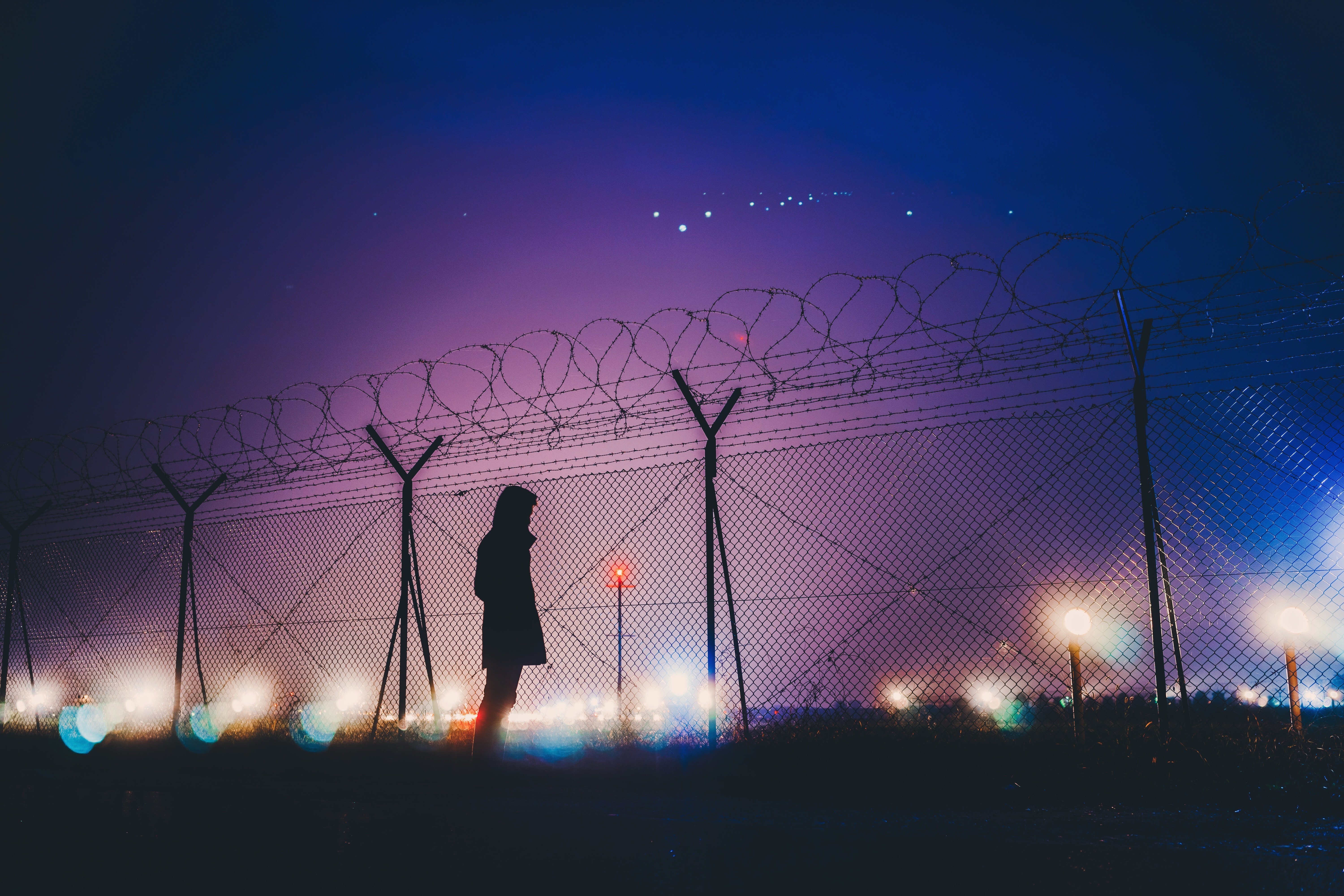Last night I led the second workshop of a 5-month long theatre residency with University Beyond Bars; I’m asking 27 men in a medium security prison in Washington state to devise an original 60-minute piece of live theatre about the origin of unprovoked American violence.

Find out more! Part 01 | Part 02

I went in this week prepared for a BIG class and all of the FUN you can have with a large ensemble of actors! As I mentioned last week I have 27 students registered!
My goals for the second workshop were to continue building an ensemble, layer in some basic acting skills, ask students to devise low-stakes original scenes, and structure a rehearsal schedule for the project, with the guys input, so that they can learn how artists schedule and plan their creative projects!
I got to class a few minutes late last night through no fault of my own. The Corrections Officer didn’t come to pick up Sponsors/Volunteers until 20 minutes past our scheduled meeting time at check-in. This is common. I am 10-30 minutes late to class more than 50% of my scheduled sessions because of DOC delays. I also lose at least one class per semester due to unplanned facility shutdowns or emergencies--which usually means I’ve driven 40 miles out of Seattle just to turn around and go back home!
Despite getting to class a bit late, there was terrific energy in the room. We had a great group of 22 students (5 of them had been given the evening off to play in a basketball game--it’s close to Finals, so you know...)
Last night we started with one of my favorite acting exercises: The Story of Your Name
Here is how it goes. All participants are paired up within the room--ideally with someone they’ve never met. Last night I asked students to point at someone across the circle from them who they’ve never spoken to before entering this class. Those were my pairs!
Each participant gets 60 seconds, on the clock, to tell their partner the story of how they got their name. This can mean something different for everyone. For example, some of my guys are strongly connected to a nickname, others to a last name, and last night I had a transgender student share her struggle with the DOC to legally change her name while behind bars.
Once both participants have offered their story and listened to their partner, we come back to the full group circle. Now each participant is responsible for introducing and telling their partner’s name story in 30 seconds. This is a great exercise in low-impact storytelling for newbie actors, and a great teaching moment for the importance of listening.
After opening with this exercise we jumped in with physical games and introductory acting exercises that began to lead into the theme of American violence.
We started with a refresher on improvisation and scene development. The first rule of improv is saying YES, AND...to your scene partner: accept the offer they give you and add on to it! I also coach beginning improvisers to stake out a strong A.L.R. in their scenes: (A)ctivity, (L)ocation, (R)elationship.
We practiced last night by writing an “open-scene” -- 6 lines of dialogue that could be framed in many ways. I then paired up actors and asked them to endow those “blank scenes” with an ALR, and to make the scene somehow reflect on one of two statements from our brainstorm the previous week:
- There’s nothing I can do to stop American violence.
- It won’t happen to me.
We threw up 10 quick scenes, then selected one that stood out to us because of its clear illustration of themes. We defined who these characters were: in this case best friends, one of whom has gone down a dark path of steroids so that he can be featured in a superhero graphic novel series.
I then asked the pairs to write a new 6-line scene, featuring these 2 characters in another time and place, i.e. a glimpse into another part of their story! Once these scenes were written--I changed things up! I asked groups to swap their scenes with another pairing, and then stage the new scene that they had received and perform it for the group!
In particular, I made this choice because we will be devising work together and there will be no room for egos, or for folks to be precious about “their work”. We are creating collaborative, generative material and that is the ethos I want to set from the very start!
We stopped 20 minutes from movement (the window of time prisoners are allowed back to their bunks) to hold a discussion on devising process and how we might structure our time together for the rest of the 5 months. I have found that there is much greater buy-in from this community if you involve them in the decision-making process.
I recommended that we spend about 1/3 of our time exploring themes, about 1/3 creating the actual material, and about 1/3 rehearsing our play. We agreed to this, although we did add an additional rehearsal to our allotment of exploration time to allow for more ensemble-building around delicate topics like violence and America.
I also had students self-select into the following groups: Actors, Writers, Administrative, Design. I want students to start thinking about the various ways that creatives collaborate on an artistic project.
For example, I will ask someone to design a poster and marketing materials--I will also ask a small delegation of students to create a distribution plan for these materials within the prison. In the real world, there will be more opportunities for these individuals in nonprofits and community agencies than in other employment fields...and I want them to learn real-world skills that will help them understand how to organize and energize communities.
Another example will be employing writers as playwrights to polish and shape the scene work we develop in class sessions. Overall, great 2nd class, and I’m ready to go back for week 3 already!

This is a weekly series! I’ll be on site every Wednesday evening for the next 5 months. Hope you can follow along as I document this project! Find out more! Part 01 | Part 02





